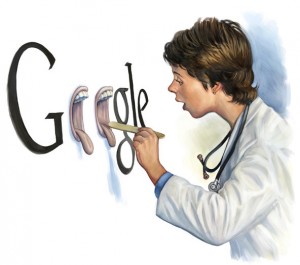
Here’s why the vast majority of doctors don’t Google their patients:
Working physicians don’t have time. The demands of modern medicine don’t allow physicians the luxury of footprint searches on patients. And I would submit that most physician trainees don’t have the time of day to monkey around with patient background checks. I train pediatricians at Texas Children’s Hospital, the largest children’s hospital in the United States and our residents don’t have the opportunity to sit let alone snoop.
Google is a dung heap of misinformation. Understanding what’s real is very difficult. Because…
Google is a place where you can be who you want to be. Digitally literate physicians understand that you have to take what you see on Google at interface value. Feeding and shaping the content stream has become common practice depending upon how you want to present your product or yourself. Patients included. The New York Times piece cites the example of a surgery forestalled over a Facebook page. Yet click farms have created over 14 million fraudulent Facebook pages.
What you learn about your patient is a function of your search history. Eli Pariser in The Filter Bubble taught us that the algorithms of Google are based on the search history of the user not the reality of the individual being searched. What one doctor learns about a patient will be entirely different from what another learns when they search. And that’s because….
Google is built to sell advertising…. not divine patient information.
A patient’s story is a patient’s business. Unless you aspire to petty digital paternalism, there may be elements of information that the patient doesn’t want you to know. The disclosure, qualification and explanation of that information should be made by the patient.
While there may be a time and a place for the digital investigation of those we are charged to serve, I suspect they are few and far between.